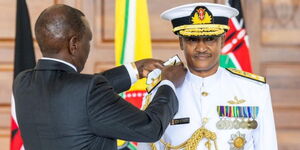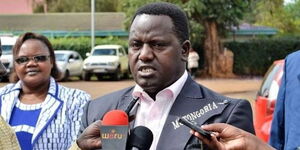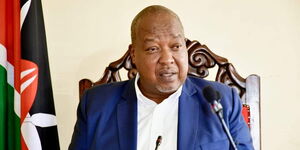Members of Parliament have raised concerns that 208,000 incoming first-year university students could miss out on the government-sponsored scholarships as budget allocation remains uncertain.
The National Assembly’s Education Committee, led by Tinderet MP Julius Melly, has warned that the crisis could unfold unless adjustments are made to the 2025/26 national budget.
According to the MP, an additional Ksh17 billion is needed to support the incoming government-sponsored first-year students, expected to join in September.
Melly argues that the addition is crucial to support government-sponsored university students, who risk missing out on crucial funding if the budget is passed as is.
Without this intervention, many students, especially those from low-income backgrounds, could struggle to afford higher education.
The government usually issues sponsored scholarships to needy students based on financial need and academic merit; contrary to HELB, government-sponsored scholarships do not require repayment.
The grants are issued to students placed in public universities and TVET institutions through the Kenya Universities and Colleges Central Placement Service (KUCCPS).
Apart from the government-sponsored university students, a crisis is also looming for secondary, junior, and primary schools, as the committee is proposing to reduce capitation funds.
The committee seeks to cut the recurrent capitation votes for Secondary Schools (Ksh3 billion), Junior Schools (Ksh2 billion), and Primary Schools (Ksh900 million) to support the administration and invigilation of national examinations, an item previously omitted from the budget estimates.
"Examinations are a critical component of our education system. Without proper funding, the credibility and effectiveness of the assessment process are at risk," said Melly while appearing before the Budget and Appropriations Committee.
The committee has called for Ksh7.3 billion to facilitate the transition of 20,000 intern teachers to permanent and pensionable terms by the end of their contracts later this year.
It also emphasised the need for stability in the education sector, noting that securing these positions would improve teacher retention and enhance the quality of instruction in schools.
To combat staffing shortages in technical training institutions, the committee has also proposed an allocation of Ksh1.9 billion to recruit 2,000 Technical and Vocational Education and Training (TVET) instructors.
“This will bridge the current TVET instructor gap, which stands at 6,000,” Melly said.












